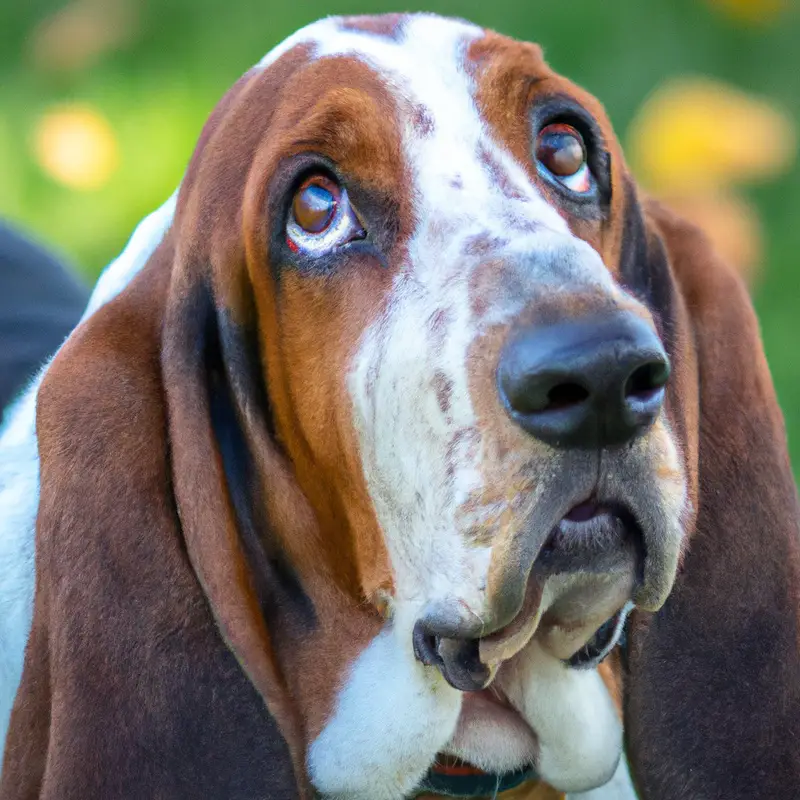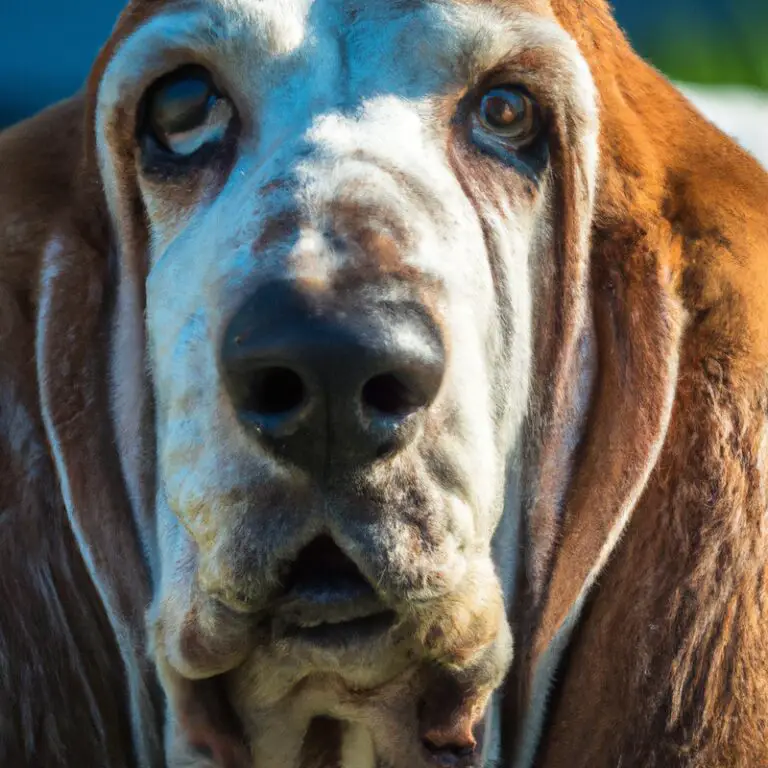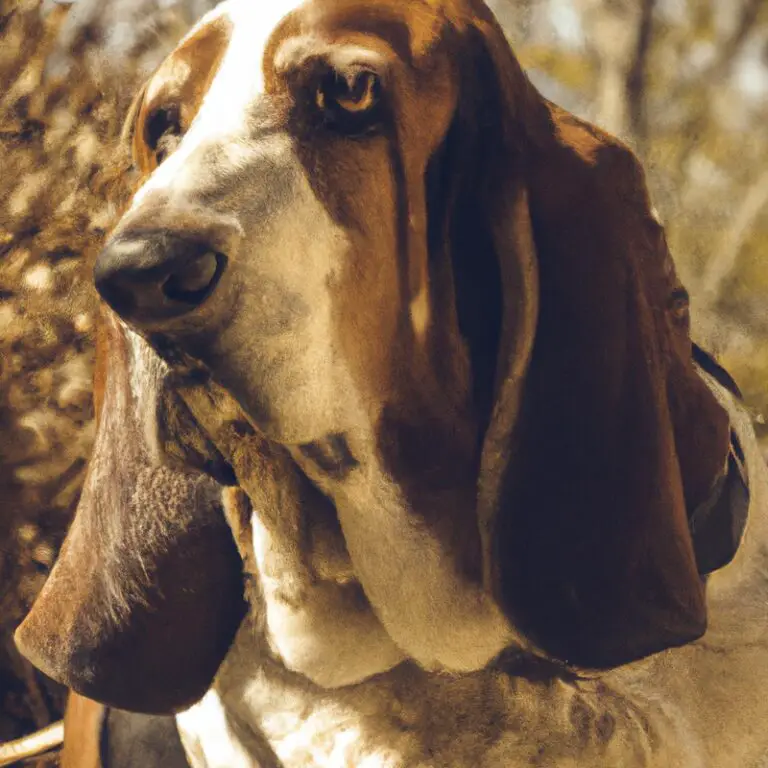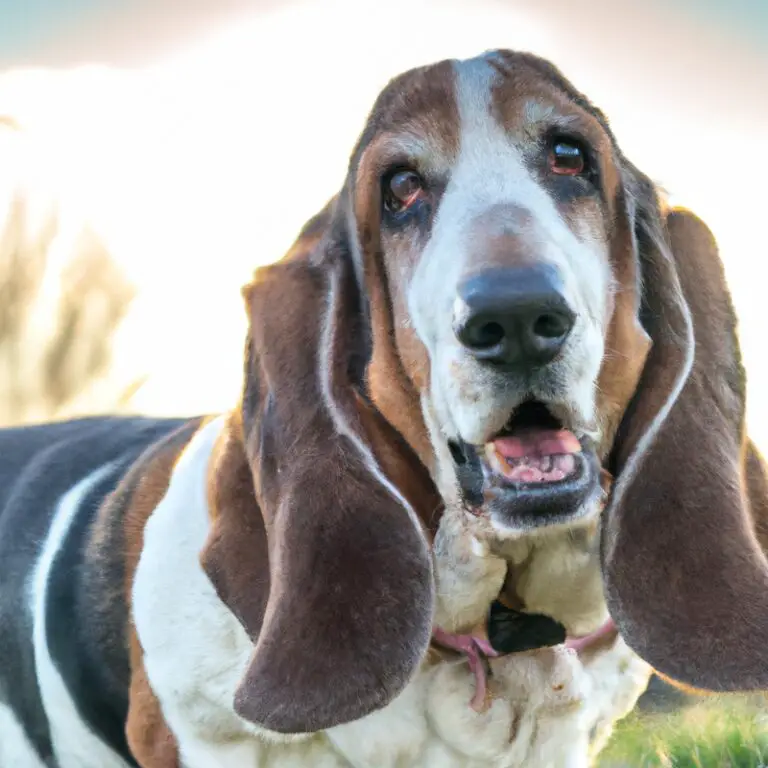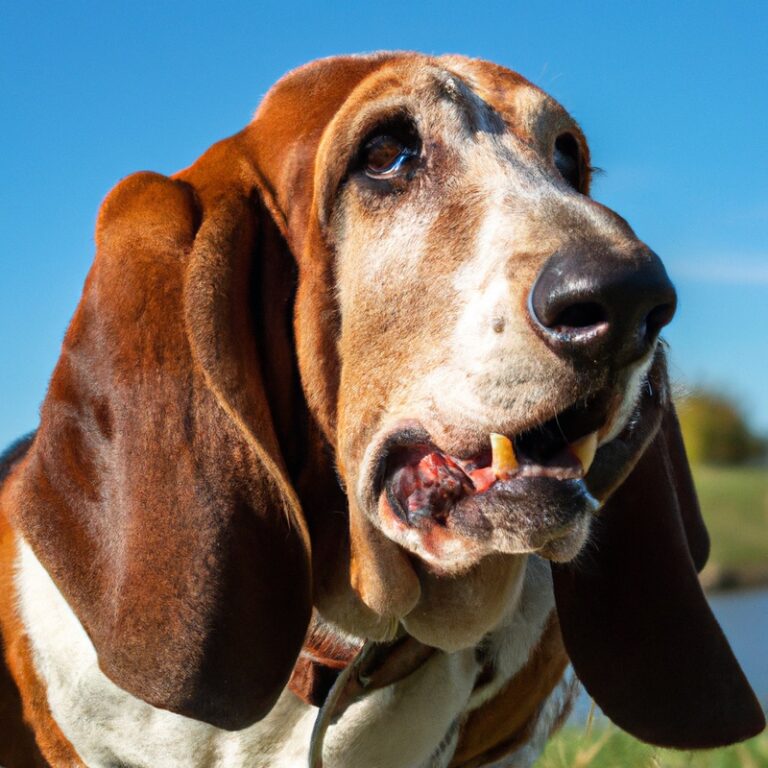How Do Basset Hounds Handle Being Left Alone For Short Periods?
Key Takeaways:
- Basset Hounds can handle being left alone for short periods of time without experiencing severe separation anxiety.
- These dogs are generally independent and can entertain themselves with toys or snooze while their owners are away.
- Providing a comfortable and familiar environment, as well as mental and physical stimulation, can help Basset Hounds cope with short periods of solitude.
- It’s important to gradually introduce alone time to Basset Hounds to build their confidence and ensure their well-being.
Have you ever wondered how Basset Hounds deal with being left alone?
As a proud Basset Hound owner myself, I’ve had my fair share of concerns about my furry friend’s well-being when I’m away.
Basset Hounds, with their sweet droopy eyes and adorable floppy ears, are known for their loving and gentle nature.
But when it comes to short periods of alone time, how do they cope?
In this article, we’ll dive into the unique physical characteristics and temperament of Basset Hounds and explore strategies to help them feel calm and comfortable when they’re by themselves.
Let’s uncover the secrets to keeping our beloved Basset Hounds happy and content, even during their alone time adventures!
| Aspect | Information |
| Independence Level | Low |
| Anxiety Level | High |
| Exercise Needs | Low to Moderate |
| Attention Needs | High |
| Training Difficulty | Moderate |
| Behavior When Left Alone | Basset Hounds may experience separation anxiety when left alone. They are prone to excessive barking, howling, and destructive behavior. They may also become restless. |
| Recommended Preparations | Provide interactive toys, create a comfortable space, ensure they have access to water, establish a routine, and gradually increase the time apart to help them adjust to being alone. |
Understanding the Basset Hound breed
Physical characteristics of Basset Hounds
Basset Hounds are known for their unique physical characteristics. They have a long body and short legs, which gives them a low-to-the-ground appearance.
Their droopy ears are another distinguishing feature, and their droopy eyes are hard to resist! Bassets are medium to large in size, with males weighing around 50 to 65 pounds and females weighing between 45 to 60 pounds.
Overall, their physical traits contribute to their charm and make them easily recognizable.
Temperament and personality traits of Basset Hounds
Basset Hounds have a unique temperament and personality that make them beloved companions.
They are generally known for being friendly, easygoing, and affectionate.
Bassets are also quite laid-back and tend to have a calm and patient nature.
Their loyalty and love for their family members are also notable traits.
However, they can be stubborn at times and may have a tendency to follow their noses, as they are scent hounds.
Overall, Basset Hounds make wonderful pets for those seeking a laid-back, affable, and loyal companion.
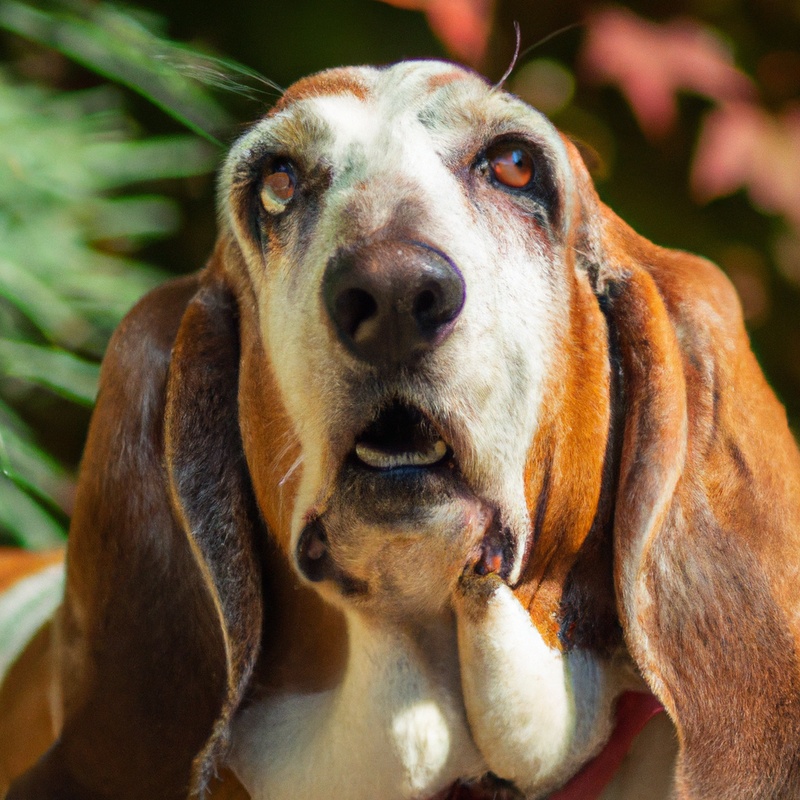
Basset Hounds and separation anxiety
How separation anxiety affects Basset Hounds
Separation anxiety can have a significant impact on Basset Hounds.
These dogs form strong bonds with their owners, and being left alone can cause distress.
Basset Hounds with separation anxiety may exhibit behaviors such as excessive barking, destructive chewing, and urinating or defecating indoors.
They may also become withdrawn or show signs of depression when separated from their owners.
Understanding and addressing separation anxiety is crucial for the well-being of Basset Hounds and can help them feel more secure and relaxed when left alone.
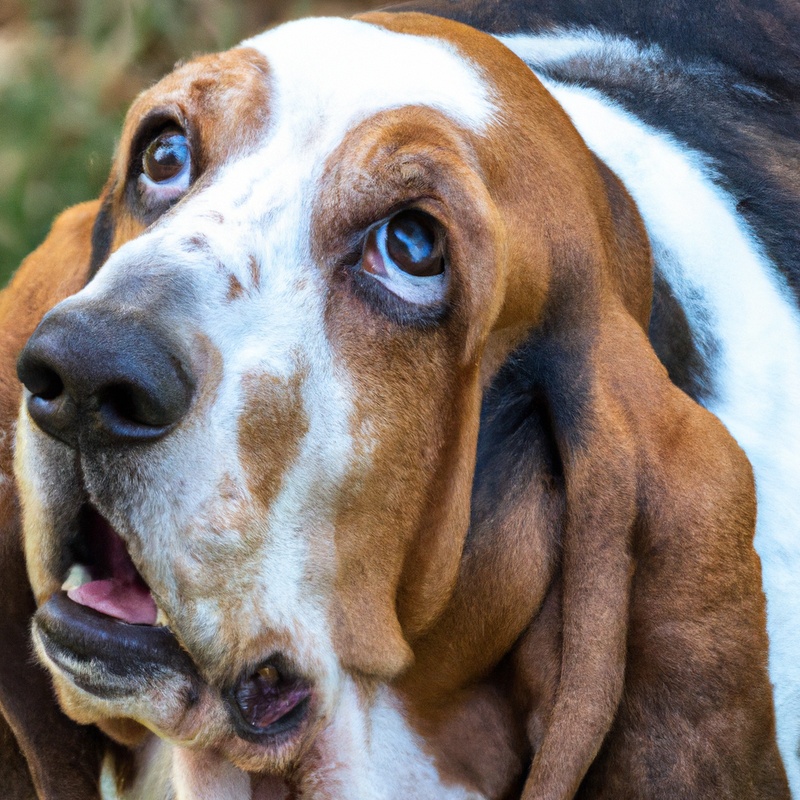
Signs of separation anxiety in Basset Hounds
When Basset Hounds experience separation anxiety, there are several signs to look out for. These include excessive barking or howling when alone, destructive behavior like chewing on furniture or shoes, and attempts to escape from the house or yard.
Other signs may include pacing, panting, drooling, and going to the bathroom indoors.
If your Basset Hound displays these behaviors when left alone, it’s important to address the issue and provide the necessary support and training to help them feel more secure.
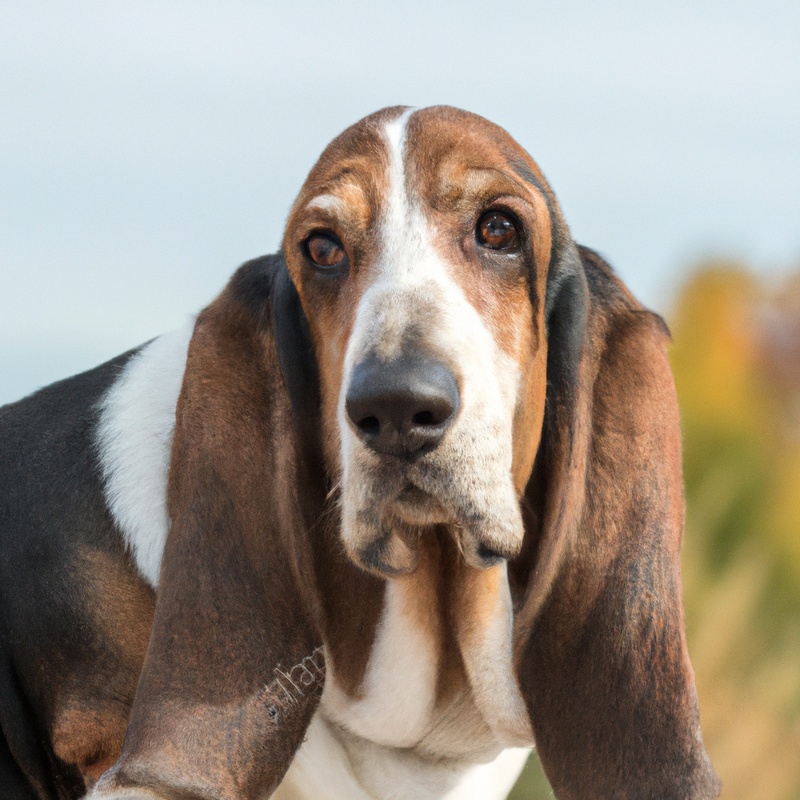
Preparing Basset Hounds for short periods alone
Gradual training for alone time
Training your Basset Hound to be comfortable when left alone should be done gradually. Start by leaving them alone for short periods of time, slowly increasing the duration.
Make sure your dog has a designated, safe space to be in when you’re not home.
Use positive reinforcement and rewards to encourage good behavior. Provide mental stimulation through toys and puzzles to keep them occupied.
Seek professional help if your Basset Hound struggles with severe separation anxiety.
Providing a comfortable and secure environment
To provide a comfortable and secure environment for your Basset Hound while you’re away, start by creating a designated space for them. This can be a cozy room or a crate where they feel safe and protected.
Make sure to include their bed, toys, and water bowl in this area.
If your Basset Hound has separation anxiety, consider leaving an article of clothing with your scent to provide reassurance. Keep noise levels low and avoid sudden changes in the home environment.
Providing a comfortable and secure environment will help your Basset Hound feel calm and content when alone.
Mental stimulation and interactive toys for Basset Hounds
Mental stimulation is essential for Basset Hounds, especially when they are left alone. Interactive toys can keep them entertained and engaged, preventing boredom and potential destructive behaviors.
Puzzle toys, treat-dispensing toys, and interactive games can provide mental exercise and stimulate their problem-solving skills.
These toys challenge their minds and keep them occupied, reducing anxiety and frustration. Incorporating these toys into your Basset Hound’s routine can help alleviate boredom and keep them mentally stimulated while you’re away.
Strategies to keep Basset Hounds calm when alone
Establishing a consistent routine
Establishing a consistent routine is key to helping Basset Hounds handle being left alone for short periods.
I recommend sticking to a regular schedule for feeding, walks, and playtime.
This will provide them with a sense of structure and predictability, which can help reduce anxiety.
Additionally, try to leave and return at the same times each day, as sudden changes in routine can be stressful for your Basset Hound.
By maintaining consistency, you can help your furry friend feel more secure and confident when home alone.
Leaving comforting items for Basset Hounds
Leaving comforting items for Basset Hounds can help alleviate their anxiety when alone.
One option is to leave an item with your scent, such as a t-shirt or blanket.
This can provide a sense of security and familiarity.
Another comforting item is a puzzle toy or treat dispenser to keep them mentally stimulated.
Soft and cozy bedding can also create a comfortable environment for them.
Don’t forget to leave plenty of fresh water and some toys to keep them entertained.
Utilizing music or white noise to reduce anxiety
One effective strategy to reduce anxiety in Basset Hounds when left alone is to utilize music or white noise. Playing calming music or soothing sounds can provide a sense of comfort and security for your dog.
The soft melodies or gentle background noise can help drown out any external noises that may trigger anxiety.
Additionally, music and white noise can create a relaxing environment, promoting a sense of calmness and reducing stress levels for your Basset Hound.
Seeking professional help for severe separation anxiety
Identifying severe separation anxiety
Identifying severe separation anxiety in Basset Hounds can be challenging, but there are some key signs to look out for. These include excessive barking or howling when left alone, destructive behavior, attempts to escape, and excessive panting or drooling.
Other signs may include loss of appetite, pacing, or self-harming behaviors.
If you notice these signs consistently when you leave your Basset Hound alone, it may indicate severe separation anxiety. It’s important to consult with a veterinarian or animal behaviorist for a proper diagnosis and guidance on how to address this issue.
Consulting with a veterinarian or animal behaviorist
If your Basset Hound is experiencing severe separation anxiety, it’s a good idea to consult with a veterinarian or animal behaviorist.
These professionals can provide expert guidance and support to help you manage your dog’s anxiety.
They will be able to assess the severity of the separation anxiety and recommend appropriate treatment options and behavior modification techniques.
A veterinarian may also be able to rule out any underlying medical conditions that could be contributing to the anxiety.
Seeking professional help is an important step in ensuring the well-being of your Basset Hound.
Exploring potential treatment options and behavior modification techniques
When it comes to exploring potential treatment options and behavior modification techniques for Basset Hounds with separation anxiety, there are several effective approaches to consider. One option is using anti-anxiety medications, under the guidance of a veterinarian.
Another is desensitization and counterconditioning training, where the dog is gradually exposed to being alone in short increments, paired with positive experiences.
Implementing enrichment activities, such as puzzle toys or interactive feeders, can also help alleviate anxiety. Additionally, seeking guidance from a professional animal behaviorist can provide personalized strategies and support.
Remember, every dog is unique, so it’s important to find the approach that works best for your Basset Hound.
Final Verdict
Basset Hounds may struggle with being left alone due to their tendency towards separation anxiety. However, with proper training and preparation, it is possible to help them cope and feel more comfortable during short periods of alone time.
Gradual training, a secure environment, mental stimulation, and comforting items can all contribute to keeping them calm.
If the separation anxiety becomes severe, it is crucial to seek professional help from a veterinarian or animal behaviorist. Remember, with patience and support, Basset Hounds can learn to handle being left alone and thrive.

